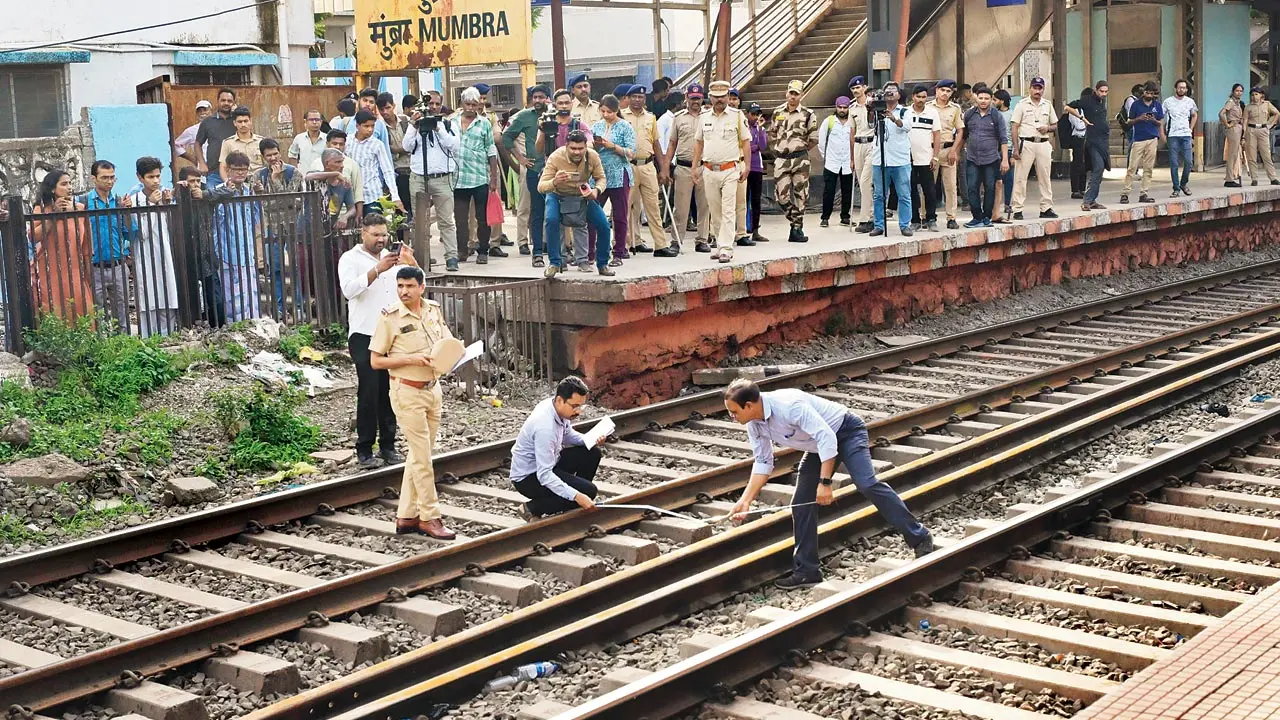With the registration of an FIR by the Thane GRP against two railway officials in connection with the Mumbra train accident on June 9, the next of kin and victims can now seek compensation under the law of vicarious liability. Initially, the CR probe had blamed commuters for hanging out of the train with backpacks, but with the FIR in place, railway officials can now be held accountable for the incident. This shift in responsibility opens the door to legal claims against the railways for compensation, say legal brains.
Railways’ responsibility
“The police investigation revealed that railway staff left a newly replaced track unwelded, directly linking the accident to official negligence. This omission establishes clear causation and invokes the doctrine of vicarious liability, making the Union of India, through the railways, accountable for the acts of its employees in the course of their duties,” explained Dr Aditi Suresh Mane, assistant professor, Maharashtra National Law University, Mumbai.
Preventable tragedies
Adv Rusit Patel said, “Local trains have been chronically overcrowded for years, compelling commuters to travel in dangerously congested compartments, often with passengers hanging from footboards and doors. While internationally it is a practice for train doors to be closed, in India, both the government and the railways have failed to address this issue. This negligence has led to tragedies like the Mumbra accident, which claimed lives.”
Proactive compensation
While no compensation can replace the loss of a loved one, financial support can provide some relief to those dependent on the deceased. Under Indian law, the state is obligated to ensure the safety of train passengers. The continued use of open-door local trains, which compromise passenger safety, falls within the scope of vicarious liability. “The lodging of an FIR, with allegations against rail staff, establishes accountability. Rather than waiting for victims’ families to file claims, railway authorities should proactively offer compensation,” explained Adv Rusit.
Negligence
Adv Floyd Gracias, constitution expert and counsel at the Supreme Court, said the FIR, which holds railway engineers accountable for disregarding GRP warnings, constitutes negligence. Under the master-servant or principal-agent liability, the railways could be vicariously liable. “However, this remains an accusation, and the charge must be proven beyond reasonable doubt before any claims are made,” Adv Gracias said.
Constitutional implications
When asked if victims of the Mumbra accident can file a class action lawsuit like in the US, Adv Gracias said, “We do not have a class action suit in the same essence in India. However, under Indian law, the aggrieved parties can collectively file a single suit for claiming damages, as it is a common cause of action.”
Railways’ liability
“Under Article 300 of the Constitution, the Union (of India) and states can be sued for acts committed by their servants. Indian Railways is liable for its officials’ negligence or failure to maintain safety protocols that harm passengers. This case underscores the state’s duty to ensure public safety,” said Adv Shreeprasad Parab.
`Official negligence`
Dr Aditi Suresh Mane, asst prof, Maharashtra National Law University, Mumbai
‘The police investigation revealed that railway staff left a newly replaced track unwelded, directly linking the harm caused to official negligence’
Floyd Gracias, advocate
‘However, it’s important to remember that this remains an accusation, and the charge must be proven beyond reasonable doubt before any claims are made’
Rusit Patel, advocate
‘While it is internationally a standard practice for train doors to be closed before departure, both the government and the railways have failed to address this issue’
Vicarious liability
Vicarious liability holds an employer or principal responsible for the actions or omissions of their employees or agents, when these occur in the course of their employment. It allows injured parties to seek compensation from the employer, even if the employer was not directly at fault.






